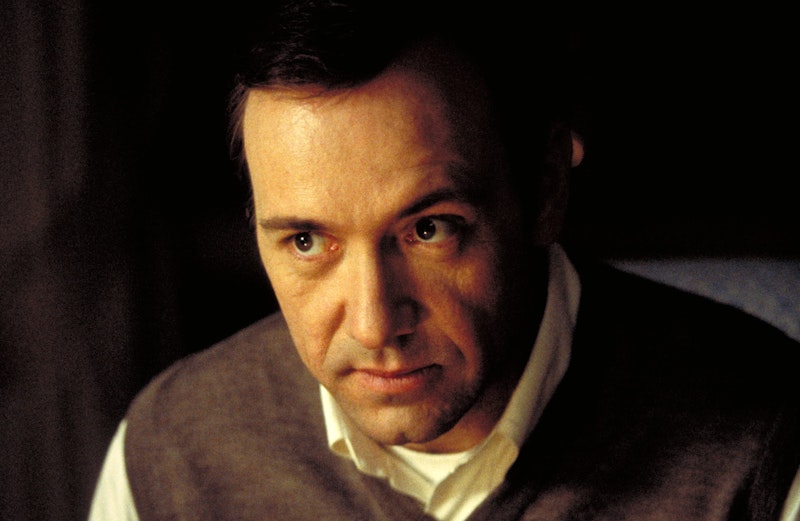That clip of Kevin Spacey doing impressions for the Actors Studio guy. I used to like it, but for years now it’s been unwatchable. Louis CK too. Odd, because I’ll watch a Polanski film and Polanski did a lot worse. But I don’t have to look at his face and laugh at his jokes. If somebody’s in front of me, I have to think about them and what they did. If they aren’t, I don’t. The issue here appears to be my comfort. Managing the pile of qualms loaded atop me by a creator’s shit behavior, I find it’s best to keep him out of view and to forgo rollicking shared-fun events.
I managed a couple months of Woody Allen viewing, so comedy doesn’t have to be a problem. There was no crowd laughing along with him, and when there was, I was watching a document from long ago—the Cavett show, for Christ’s sake. Wait, here’s another factor: I knew that I’d never turn to Woody Allen for pleasant relaxation, as opposed to sizing him up as a specimen of his times and nature’s erratic ways. Whereas Louis CK was a guy I had around and I used to like him. Now I like it if he isn’t there.
The above isn’t a policy, it’s a reaction. A policy might line itself up with an overarching idea of right and wrong and then set a straight divide between good actions and bad actions. Instead, I go as my feelings tilt, and their bias is toward my amusement and sense of well-being. In this deal conscience is something that intrudes; it doesn’t direct. I don’t mind when it shows up. Its claims are valid. On the other hand, I’m still fine watching Rosemary’s Baby.
That’s how I go with moral dilemmas regarding arts and entertainment. I suspect a lot of people follow my approach. Morally they care about their comfort, and their comfort’s helped along by simple things like an absence of awkward reminders. On Twitter someone with a Sopranos account posted an open question: why did he feel all right listening to the show’s characters being racist when he didn’t feel all right posting the relevant quotes? An answer stood out: “It’s kind of shitty to see racist words staring at you from the screen, as opposed to hearing one fictional person say them to another in the course of a series of engrossing made-up events.” A couple of hundred people liked that one, several times more than any of the other replies. I guess everybody relates. (Me included, since I wrote it.)
Somebody with a hard-muscled, flat-stomached kind of soul might say this reaction is mere squeamishness. They’d say I don’t care about what the assholes did, just about the guilt rays beamed my way by the world’s professional disapprovers. But they’re wrong. Anyone who’s been pushed around as much as I have is going to care about the damage done by aggressive shitheads. Even so, my caring may or may not translate into action sought by the disapprovers. I don’t know the victims or the assholes, and my responsibility toward them is divided among 8.1 billion people. The actual participants and I share the following situation: information about them is at large and I ran into it. That doesn’t sign me up for much.
But knowing what I know, I don’t like having Louis CK’s peeled-rutabaga face in front of me. This aversion remains mine; it’s separate from whatever collective eew we’re supposed to maintain on Me Too grounds. Polanski gets a different deal, Woody Allen (God help us) another one. Kevin Spacey’s clip is out, eliminated. The uniting link is that the arrangements suit me. I think a lot of people have a similar ramshackle pile of policies. Total the policies in a given pile and probably they’ll add up to something or other that isn’t too horrifying. But if you can watch that Spacey clip, you surprise me.

